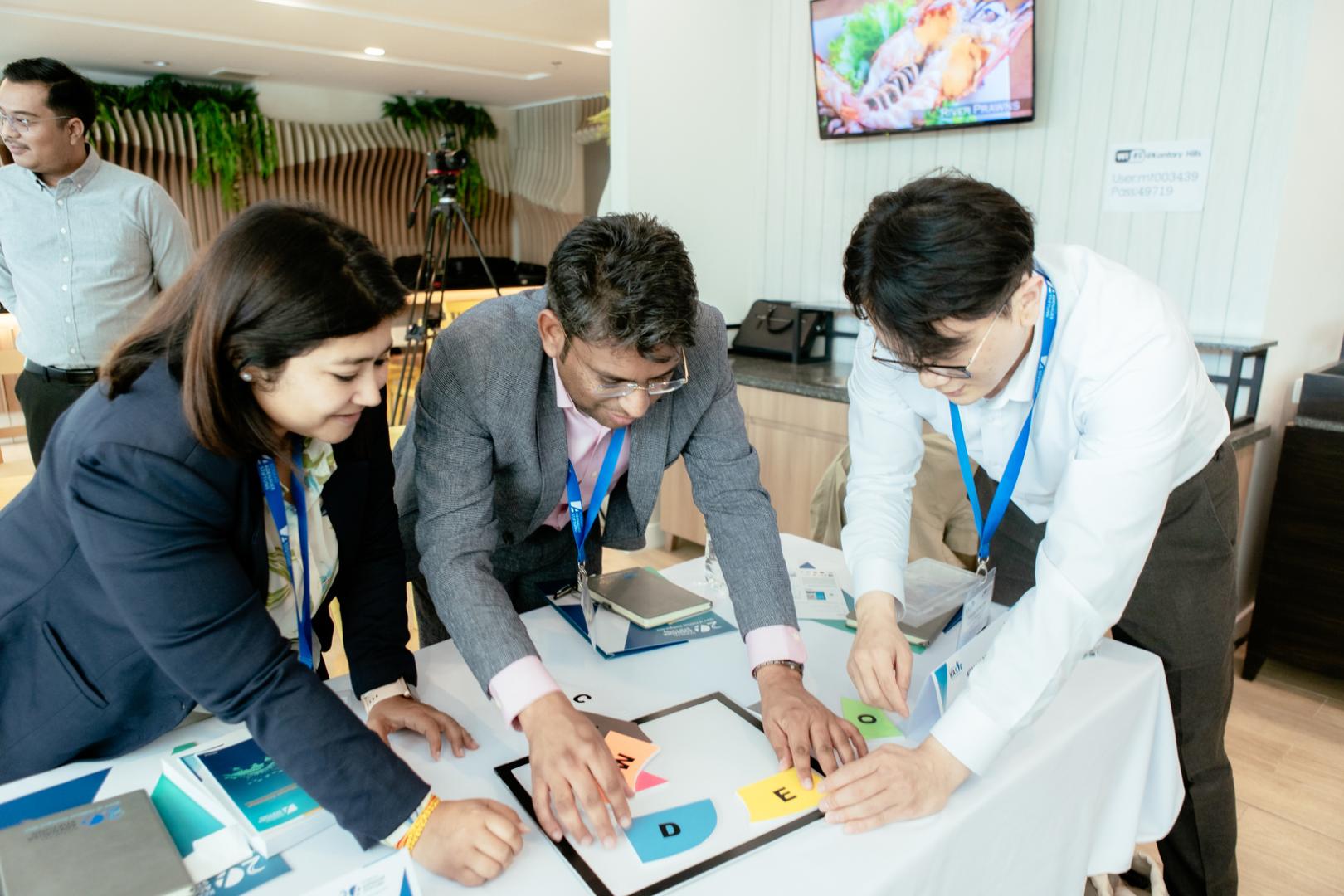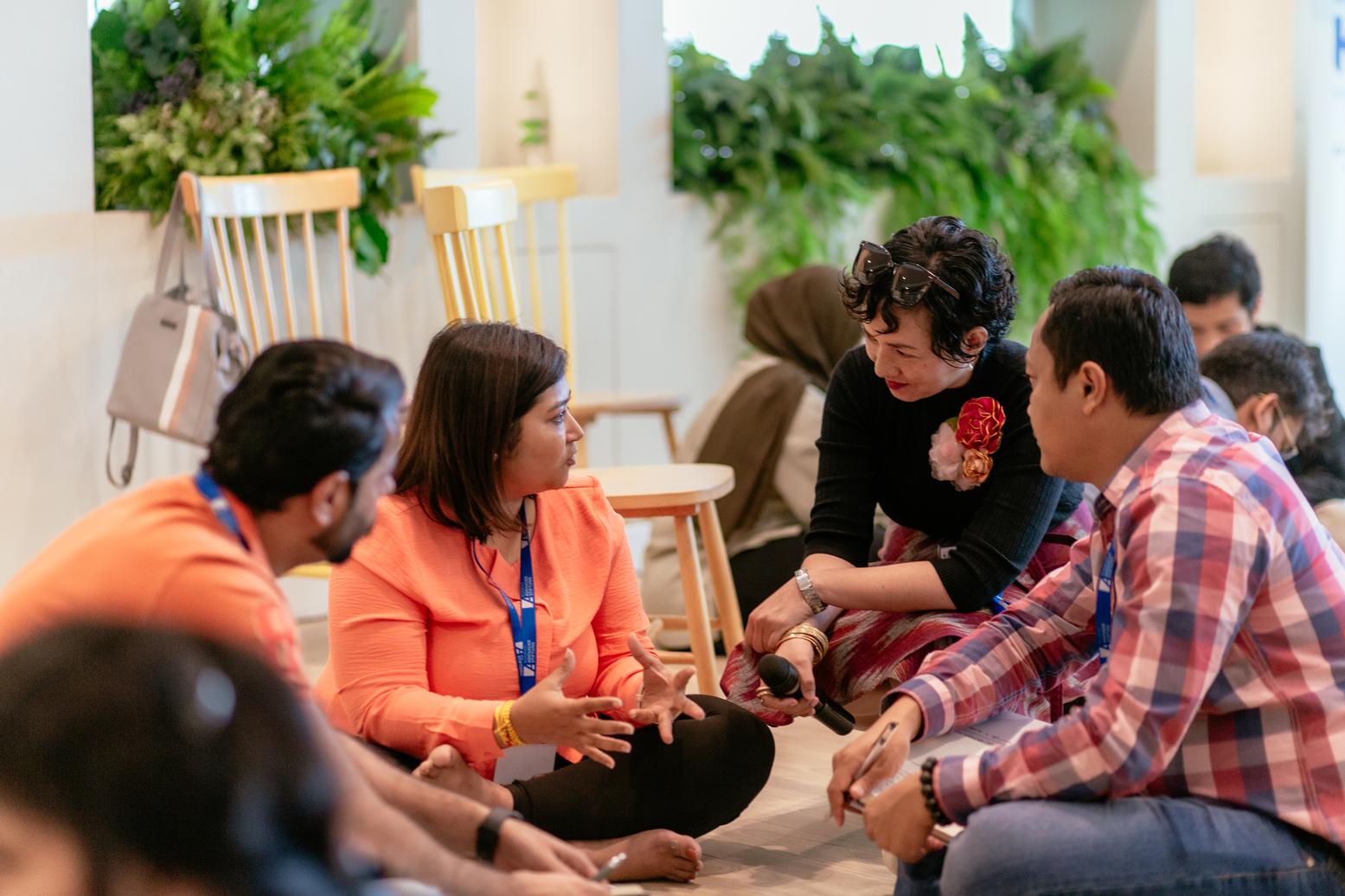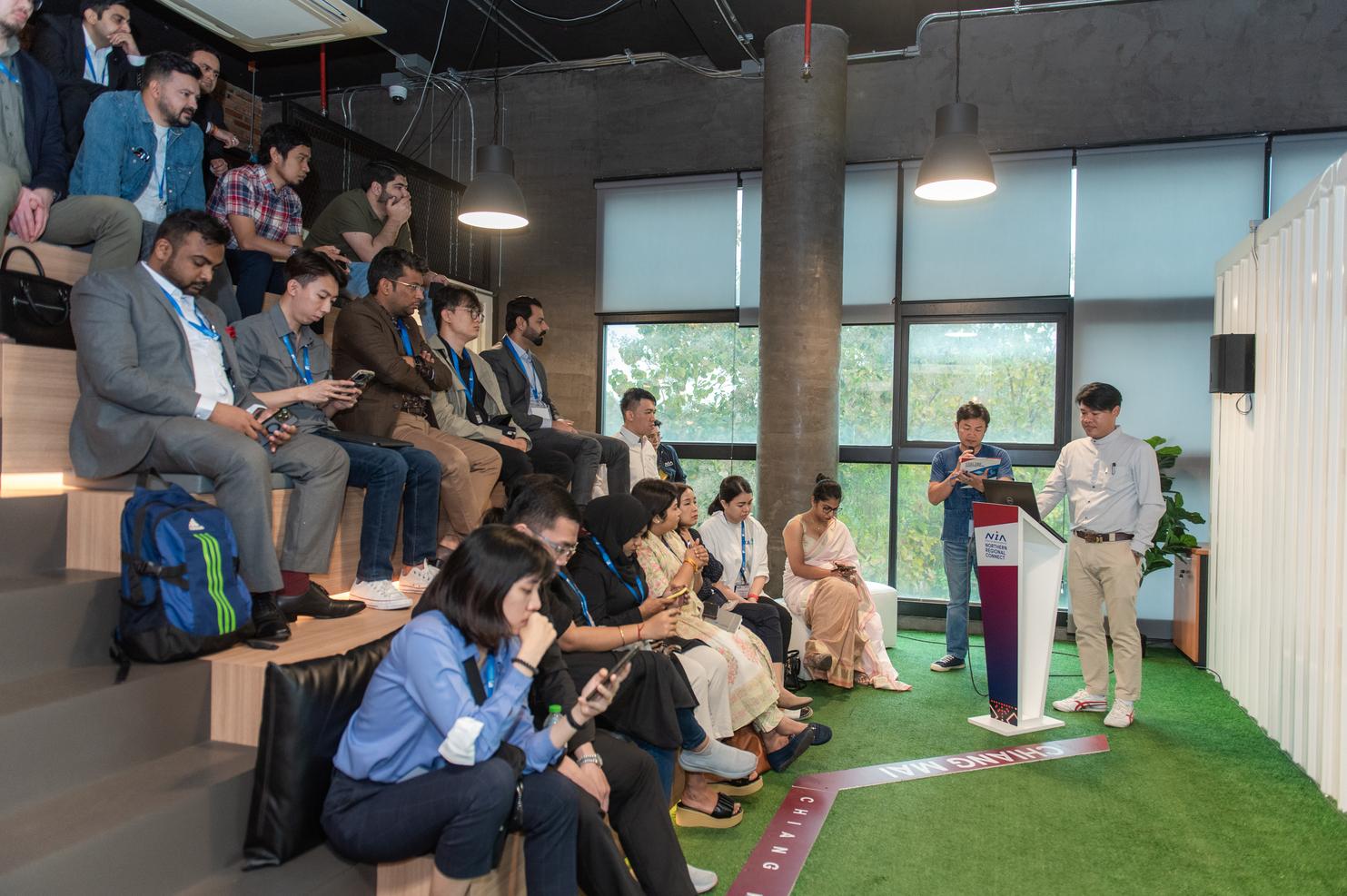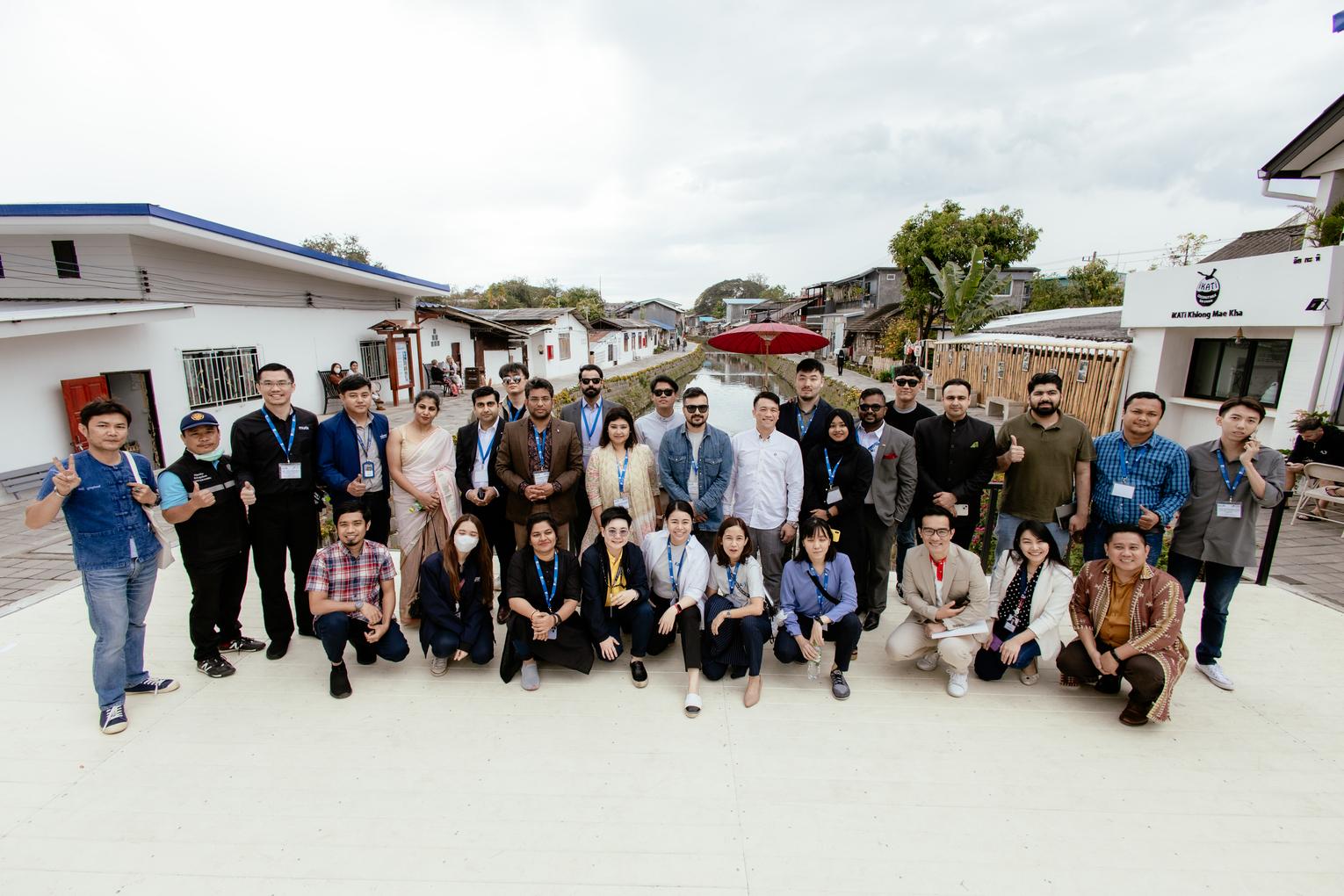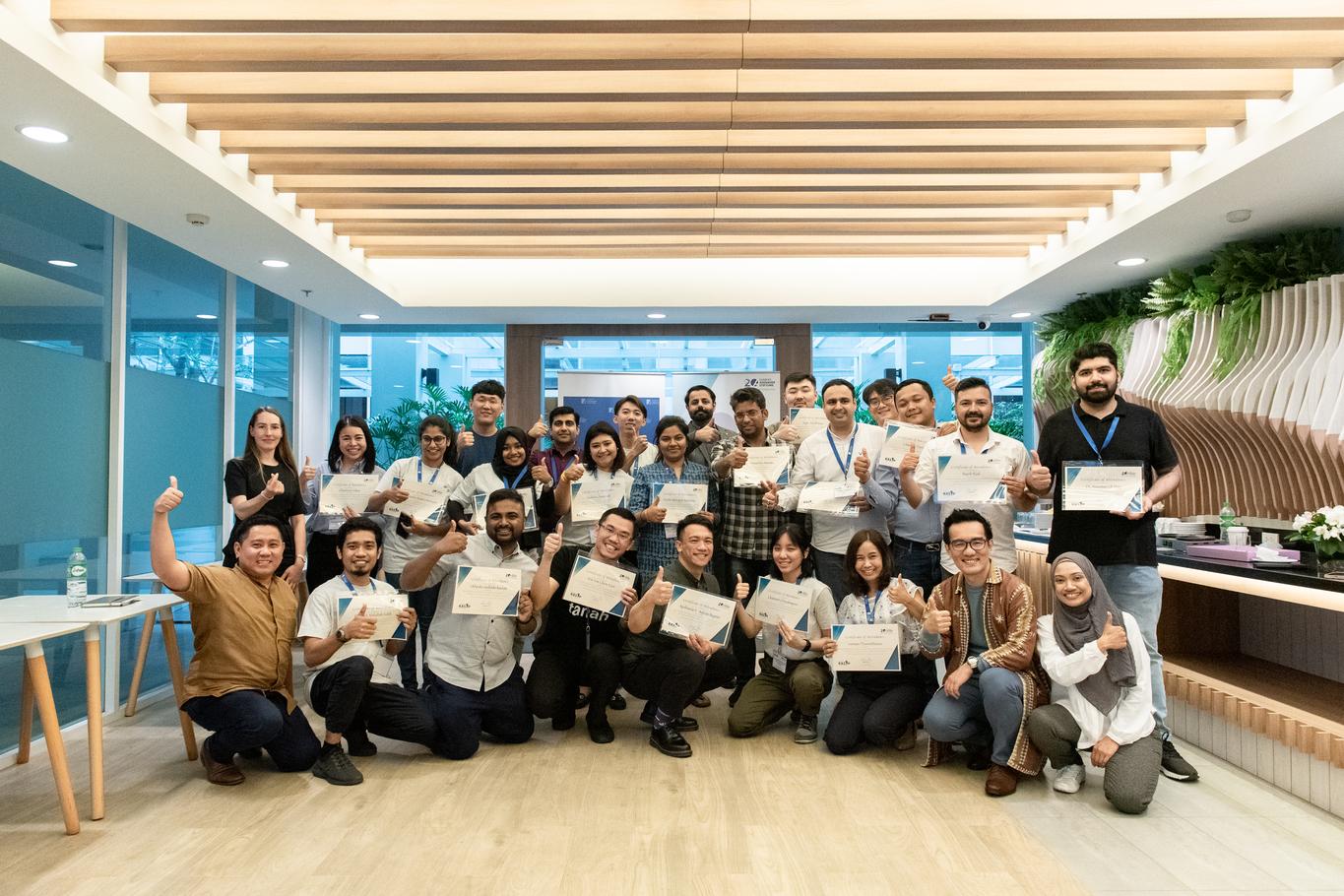It is already the 14th cohort of KASYP but every time we meet the fellows for their first module, it always feels energizing, uplifting and inspiring because of the passion, determination and commitment to public good that the participants embody. This experience makes the Konrad Adenauer School for Young Politicians (KASYP) privileged to be part of these young leaders’ lives by providing them a training programme that complements the different phases of one’s political journey.
The commencement of KASYP training programme starts with the module on “Political Parties’ Functions and Organizations in Democratic Societies.” This module aims to provide participants with background knowledge on diverse political environments and party systems in Asia as well as communication skills and leadership training. Fellows for this cohort met in Chiang Mai, Thailand last 12 – 17 February 2023 to participate in this first module.
Following Bloom’s Taxonomy for the programme design, the training started with the core and elective topics which covered political ideologies, values, parties, and party systems in Asia, intra-party democracy, and political dynasties. Participants learned from these sessions how political ideologies and values vary across political parties and why strengthening parties depend on clear party programmes, values and principles. They also examined how diverse party system set-up influences the development of parties and democracy in different country contexts. An interesting topic tackled during the first day was on political dynasties and its possible effects on democracy, particularly intra-party democracy, and development. As some participants are from political families, the first hand insights shared during the discussions were enlightening as they gave us a peek on the dilemmas these young leaders face and how they try to solve it while staying true to democratic values and principles. Dr. Sandeep Shastri, Professor of Political Science and Vice Chancellor of Jargan Lakecity University, Bhopal, India delivered the core topic while Prof. Julio Teehankee, Professor of Political Science and International Studies of De La Salle Manila University, Philippines facilitated the world café workshop on political dynasties.
As for the skills training, the 1st module focused on providing the participants basic knowledge and techniques on framing, pitching and storytelling. As young political leaders, developing and delivering messages is a major part of their lives thus, it is crucial for them to learn content and skills that will help them become effective communicators. Ms. Maidy Lynn Lim, Expert in Multi-stakeholder engagement in Project Development facilitated this particular training.
To practice what they learned from the communications training, the KASYP participants engaged in argumentation and debate on the following propositions, “that the State should provide funding for political parties” and “that political parties be allowed to receive support from like-minded international political parties”. The debates were heated yet friendly as the participants stood their ground in defending what they believe in, what they practice in their local politics and what they think is best for the future of democracy.
One common argument in favor of both propositions is the high cost of democracy thus, there is need to source support outside the party in order not to be captured by moneyed and peculiar vested interests. These supports could either be from the State or from international like-minded organizations. On the other hand, the argument against these propositions point to the same issue on peculiar vested interests. Parties as political instruments of particular agenda should be allowed to advance their agenda without intervention from either the State or foreign interests. These debates were an effective mechanism for the participants to process various ideas, supporting and contrasting one, and at the same time learn from the argumentation presented by other speakers.
The third aspect of the KASYP programme design is the affective session where participants create new experiences that will nurture their leadership capacities. As the title of this first module suggests, Knowing is the process where KASYP participants undergo introspection on their leadership journey, examining their leadership capital development plans, giving voice to their values and strengthening their public narratives. All of these are part of the new leadership training programme for KASYP which is called the Bridging Democratic Leadership (BDL) which was facilitated by Dr. Ryan Guinaran who is also an outstanding leader from the Philippines.
To complement BDL, we provided the participants new source of inspiration from learning visits and dialogues sessions with local political and policy experts on Thai politics. First, the delegation visited the National Innovation Agency (NIA) of Thailand where they learn how the agency supports and develops Thailand’s innovation system, in both the way of improvement and initiation, to promote economic restructuring and competitive enhancement. In this visit, the participants had the opportunity to exchange innovation practices with Mr. Manatpong Mangkhrai from the NIA and Mr. Chaturayut Promnil, Foreign Relation Officers from the Chiang Mai Municipality. After the visit to NIA, the had an immersion experience by visiting the Mae Kha canal which is a flagship project of the NIA and Chiang Mai Municipality. This canal project features the result of innovation and how it positively impacted the social, economic and environmental progress of the surrounding.
The second leg of the learning visit and dialogue session was in Chiang Mai University. The delegation was treated for an interesting discussion by Prof. Dr. Tanet Charoenmuang on local Thai politics followed with two break-out sessions. One session tackled the challenges and opportunities brought by the developments occurring in the Mekong region with Assist. Prof. Dr. Supitcha Punya and Dr. Sirada Khemanitthathai as speakers. The second one was a dialogue session with some university students on decentralization, governance and local youth policy facilitated by Assist. Prof. Dr. Wannapa Leerasiri and Assist. Prof. Dr. Chanintorn Pensute. This engagement ended up with the KASYPers inspiring young Thai leaders to fight for their rights, their space on the table and for their noble aspirations.
“It was engaging and thought provoking. Moreover, it was designed in a way that made us to interact and share our views with youth leaders from other countries. The sessions were very well designed and certainly helped in our personal growth.”
“It was a wonderful programme giving the young political leaders an opportunity to enhance their knowledge, learn skills and network with leaders from other countries.”
“Intense but very well organized.”
Above are few remarks from the KASYPers and it only shows how the programme is beyond learning and more on empowering accountable and responsible leaders.



